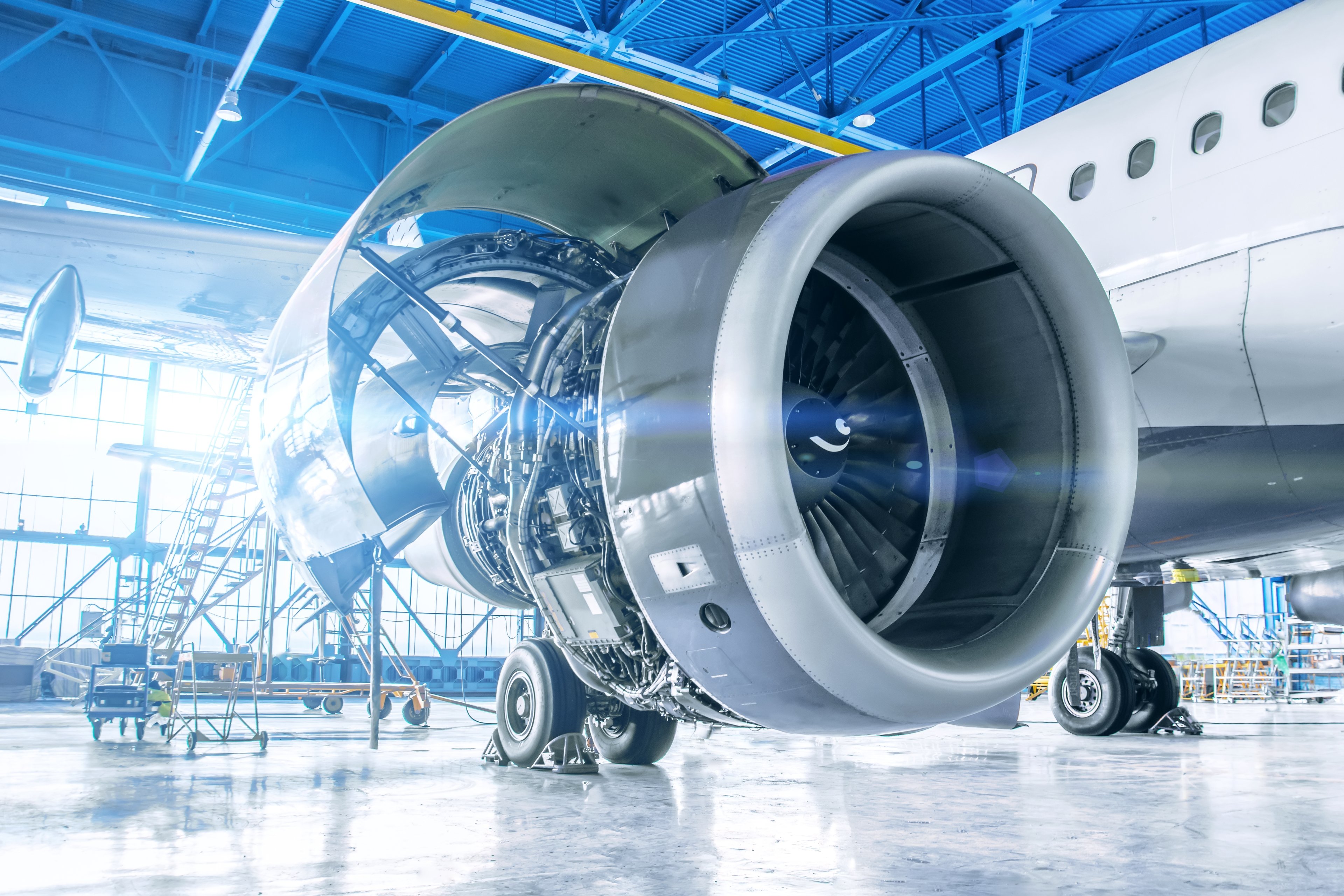The recent news that General Electric (GE +1.62%) has terminated orders for 69 Boeing 737 MAX airplanes may have sounded to some like a net positive for GE. After all, it's no secret that the COVID-19 pandemic has hit the commercial aviation industry hard, so this sort of cutback measure is essential. However, the move serves to highlight a rarely discussed area of GE's operations that could provide the biggest negative surprise in its earnings in 2020. Let's take a closer look.
What the order cancellation highlights
There are three takeaways from the announcement, with the first two being the most prosaic:
- GE Aviation's joint venture with Safran, CFM International, is the provider of the only engine option on the 737 MAX (the LEAP-1B), so GE Aviation will miss out on the benefit of some engine orders.
- GE is heavily reliant on the aviation industry for its earnings, with GE Aviation being the conglomerate's largest profit center.
- The order cancellation actually came from GE's aircraft leasing business, GE Capital Aviation Services or GECAS -- a business bound for a very difficult year in 2020.

General Electric needs commercial aviation to come back. Image source: Getty Images.
Most investors should understand the first two points by now, but it's worth reiterating how important aviation is to GE's industrial earnings and cash flow. For example, the following chart shows GE's industrial free cash flow (FCF) in 2019 and the importance of aviation to it. In fact, that importance has increased because GE's biopharma business, which generated $1.3 billion in FCF in 2019, was recently sold to Danaher.

Data source: General Electric presentations. *includes $1.3 billion in FCF from the biopharma business sold to Danaher.
Focus on GE Capital and GECAS
The third point highlights the rapidly deteriorating environment for aircraft leasing companies like GECAS. It's a great business to be in when the market is soaring and airlines need planes, but when the market turns sour the leasing companies can be severely exposed.
In a recession, airline lease defaults will rise and customers are likely to start asking for relief from their leasing payment obligations. Meanwhile, the lack of demand for aircraft is likely to pressure used aircraft prices -- GECAS and others will find it hard to sell off unwanted aircraft.
Take for example a GECAS competitor, Avolon. Avolon's management gave a business update at the start of April: "Avolon has received requests from more than 80% of its current owned and managed customer base for relief from payment obligations under their leases, these lessees account for more than 90% of annualised contracted rental cashflow of the current owned and managed fleet." Incidentally, Avolon also canceled orders for Boeing 737 MAX aircraft recently.
Furthermore, a quick look at the share prices of the listed aircraft lessors shows how nervous the market is about them right now.
Data by YCharts
Why GECAS matters
Clearly the slump in air travel is going to hit GE's industrial FCF hard in 2020, but it's going to hit GE Capital as well. GECAS is the main profit generator at GE Capital and by far its most valuable business.
|
GE Capital Profit |
2019 |
2018 |
2017 |
|---|---|---|---|
|
GECAS |
$1 billion |
$1.2 billion |
$2.1 billion |
|
Energy Financial Services |
$0.1 billion |
$0.1 billion |
($1.5 billion) |
|
Industrial Finance and Working Capital Solutions |
$0.2 billion |
$0.3 billion |
$0.5 billion |
|
Insurance |
($0.6 billion) |
($0.2 billion) |
($7.2 billion) |
|
Other continuing operations |
($1.3 billion) |
($1.9 billion) |
($0.7 billion) |
|
Total |
($0.5 billion) |
($0.5 billion) |
($6.8 billion) |
Data source: General Electric presentations.
Moreover, while the focus has been on reducing GE's industrial net debt, GE Capital had $59 billion worth of total debt at the end of 2019.
In the investor outlook meeting in early March, management forecast that GE Capital would lose between $300 million and $500 million in 2020, with GECAS partially offsetting losses elsewhere by contributing between $900 million and $1 billion in profit. Unfortunately, that's not a realistic scenario anymore, so investors should brace themselves for significant losses at GE Capital.
What it means to investors
The risk is rising at GE, and not just in GE Aviation or the industrial businesses. GE Capital is also likely to face significant challenges in 2020. The commercial aviation market is likely to recover over time. However, there are probably many other, less risky, ways to play an aviation recovery than buying GE stock right now.












